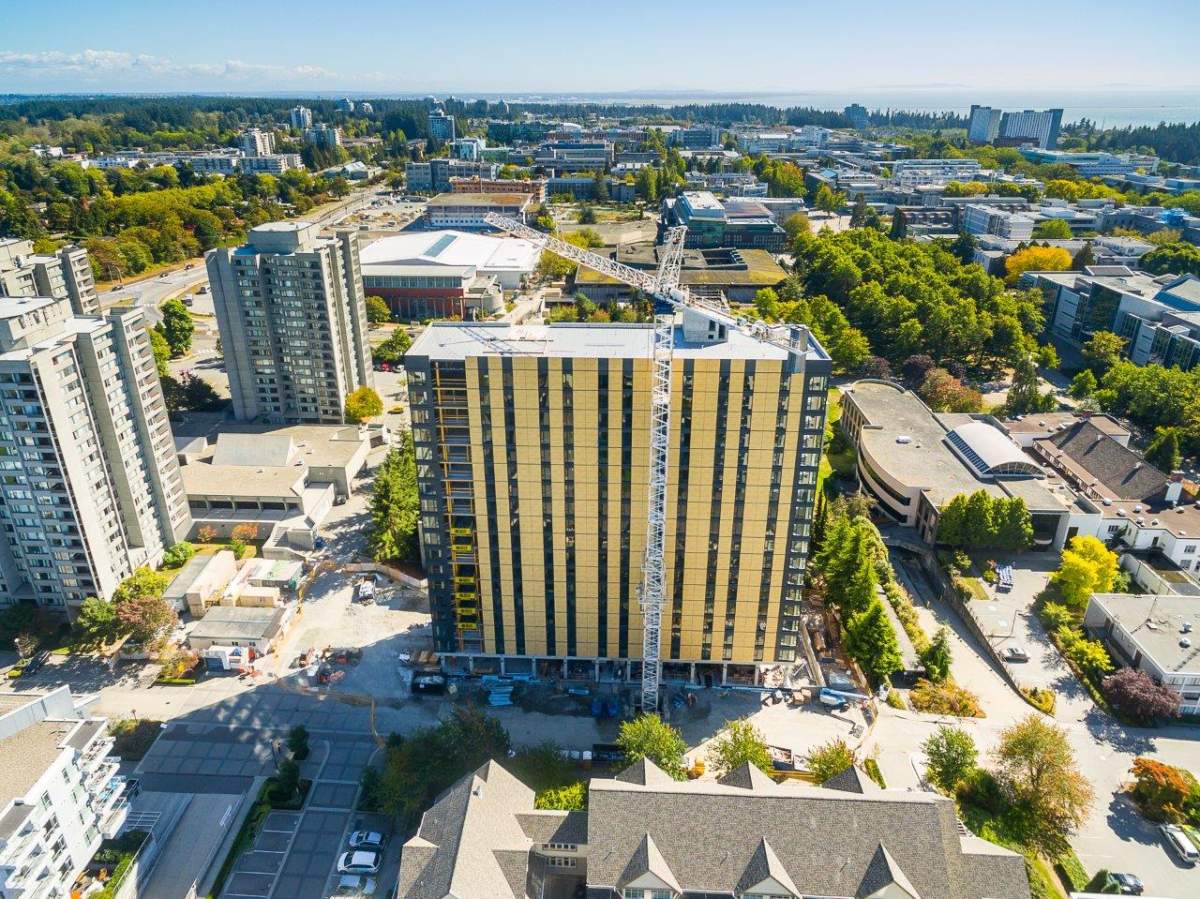It stands 18 storeys tall and is now the tallest wood building in the world.

University of British Columbia’s Brock Commons student residence is the first mass wood, steel and concrete hybrid project taller than 14 storeys in the world.
It will provide additional housing for students, and, the provincial government hopes, will show new applications for B.C. lumber.
On hand for today’s unveiling were Canada’s Minister of Natural Resources Jim Carr and B.C. Minister of Forests, Lands and Natural Resource Operations Steve Thomson.
Both touted wood as an efficient building material, but also an opportunity to create new jobs in B.C.’s forest industry.
The university says wood is a sustainable building material that stores, rather than emits, carbon dioxide, leading to a reduction of 2,432 metric tonnes of carbon dioxide compared to other construction materials, the equivalent of taking around 500 cars off the road for a year.
The building has a concrete podium and two concrete cores, with 17 storeys of cross-laminated-timber floors supported on glue-laminated wood columns. The cladding for the façade is made with 70 per cent wood fibre.

Get breaking National news
READ MORE: Country’s tallest wood tower tests building codes
The 53-metre structure was built four months ahead of schedule and will be fully completed in May 2017.
- Parts of B.C.’s South Coast set to see snow-rain mix with ‘rapidly changing’ travel conditions
- Survivor of one of Canada’s first school shootings reflects on Tumbler Ridge grief
- Recipe: Meat and veggie potsticker or steamed dumplings
- B.C.’s provincial deficit ‘unsustainable’ as budget day nears, official says
The plan is to house more than 400 students in the building next school year.
“Wood is increasingly recognized as an important, innovative and safe building material choice,” said UBC President Santa Ono. “This new tall wood building reflects UBC’s leadership in sustainable construction and our commitment to providing our students with more on-campus housing.”
National building code regulations currently limit wood structures to four storeys. In British Columbia, provincial codes have allowed wood towers to reach six storeys since 2009.
Timber-related industries hope Brock Commons will help make a case for building codes to allow 10- to 12-storey wooden structures in the future.
The project comes at a cost of more than $51 million, $47 million of which was financed by UBC. The rest was covered by Canadian and B.C. taxpayers, with a $2.34-million contribution from Natural Resources Canada and $1.65 million from the B.C. government.
-With files from the Canadian Press
WATCH the time lapse of the building’s construction:








Comments
Want to discuss? Please read our Commenting Policy first.